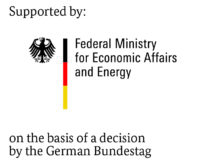Compatibility of polymers and synthetic fuels
Compatibility of synthetic paraffinic liquid fuels with polymers in existing domestic heating systems
Brief description
To achieve the climate targets of the German government, various studies recommend the use of a broad technology mix, including renewable biogenic and synthetic fuels. The technology already available today for the production of high-quality liquid paraffinic hydrocarbon compounds from CO/H2 mixtures is Fischer-Tropsch (FT) synthesis. CO sources include biogenic feedstocks such as lignocellulose or undefined biomasses and CO2 capture from the air or from waste gases in industrial processes. Synthetic fuels (PTL) are greenhouse gas (GHG)-reduced or even GHG-neutral if the energy required for the manufacturing process is obtained exclusively via electricity from renewable sources. As an alternative to FT synthesis, paraffinic fuels can be produced by hydrogenating various vegetable oils ( HVO) or used fats and oils. Paraffinic fuels have very good combustion properties as well as high stability against thermooxidative degradation and thus high long-term storage stability. They are drop-in-capable, i.e. they are suitable for blending with fuel oil and diesel fuel.
Elementary for the introduction of paraffinic alternative fuels in the home heating sector is their compatibility with the tanks and fuel-carrying fittings of oil heating systems. Polyethylene PE and PVC polymers (materials for oil tanks), as well as NBR sealing materials swell in diesel fuel and heating oil. The cause is the aromatic hydrocarbons contained in these middle distillates. HVO and PtL fuels consist almost exclusively of paraffinic hydrocarbons. It is currently not known how these paraffinic fuels interact with the polymers used in plants where they have been in contact with pure fuel oil or fuel oil-FAME blends over a long period of time and have absorbed aromatic hydrocarbons, for example. The consequences of alternating fuel use (alternating exposure) on the various properties of the polymers used have yet to be investigated.
Aims of the project
The aim of the research project is
- to determine, with regard to the stability of the polymers, the risks to be expected in existing oil heating systems when switching from heating oil to synthetic fuels or a fuel blend with a low aromatics content,
- to determine for heating oil with admixture of synthetic fuels the composition for which trouble-free and safe operation of the supply system can be ensured without adjustment,
- to find test methods which show the changes in properties of the plastic components after fuel loading and which are suitable for assessing the quality of the various components/product properties, in order to be able to predict the resistance of the components,
- to determine the resistance of alternative polymers to synthetic fuels that may be used in the plants in the future.
The research results expand the basic knowledge, which is the prerequisite for deriving measures to ensure trouble-free use of heating oil with proportions of paraffinic fuels or pure synthetic predominantly paraffinic fuels in oil heating systems. This includes, for example, the adaptation of standards and the assignment of approval conditions for new tanks.
Work tasks OWI
- Mixing of fuel blends and analysis of the fuels
- Storing of test specimens in the fuels
- Loading of plant components in recirculating test rigs
Research institutions
- OWI Science for Fuels gGmbH
- Institute for Plastics Processing (IKV) in Industry and Trade at RWTH Aachen University
Project funding
The IGF project 21649 N of the research association German Society for Petroleum and Coal Science and Technology e.V. – DGMK, Überseering 40, 22297 Hamburg was funded through the AiF as part of the program for promoting joint industrial research (IGF) by the German Federal Ministry of Economics and Energy based on a German Federal Parliament resolution.

Project duration
03/2021 until 08/ 2023
Contact
Dipl.-Ing. Metalia Irawan-Pieperhoff
Tel.: 02407/ 9518-137
email: M.Irawan-Pieperhoff@owi-aachen.de
